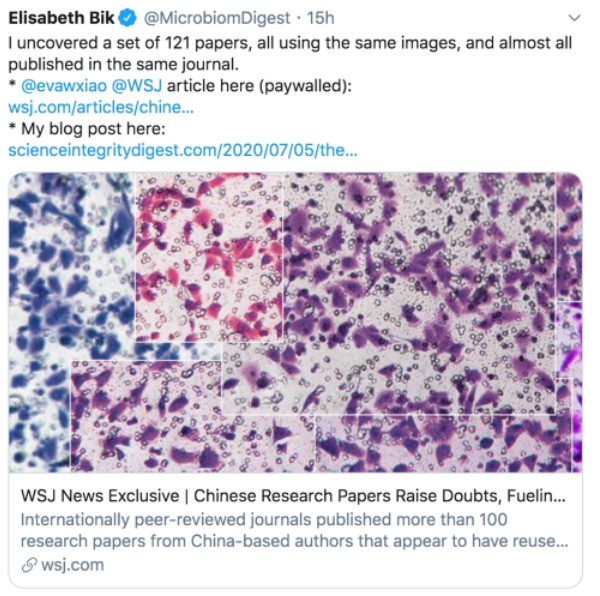Each month COPE Council members gather and share publication ethics news. This month the news includes articles on text recycling, diversity and inclusion, preprints, and more.
Text recycling
The University Grants Commission in New Dehli, India, has indicated that self-plagiarism, or text recycling, is not acceptable and that identified instances of this could be used by appropriate committees in evaluating academic performance and promotions, among other academic milestones.
text recycling not acceptable in India
Peer review
An interesting controversy is playing out in the court of public opinion on a paper published in PNAS, the journal of the National Academy of Sciences. One of the paper's authors is a member of the Academy and the paper was accepted after review via a special "contributed track" for academy members, by which they can select their own reviewers. Forty scientists have requested in a letter that the paper about face masks for protection against the COVID-19 infection be retracted due to poor methodology and false statements. One author declined comments as they "prefer not to engage in scientific debates via social media platform". This controversy pushes so many important buttons: the pandemic, concerns about the peer review process, post-publication review, role of social media.
concerns about peer review process
Diversity and Inclusion
The Royal Society of Chemistry has announced a cross-publisher Diversity & Inclusion initiative to drive change in scholarly publishing.
cross-publisher diversity and inclusion initiative
Scholarly Kitchen have been highlighting research and researchers writing about racism from a variety of disciplinary perspectives. The collection is available on their website.
racism in publishing and research
Scientific misconduct
 Stock Photo Paper Mill: Elisabeth Bik has looked into papers which contain images from the same library of about 100 photos and plots, suggesting they were all created from the same paper mill. This from the Wall Street Journal: "Internationally peer-reviewed journals published more than 100 scientific research papers from China-based authors that appear to have reused identical sets of images, raising questions about the proliferation of problematic science as institutions fast-track research during the coronavirus pandemic".
Stock Photo Paper Mill: Elisabeth Bik has looked into papers which contain images from the same library of about 100 photos and plots, suggesting they were all created from the same paper mill. This from the Wall Street Journal: "Internationally peer-reviewed journals published more than 100 scientific research papers from China-based authors that appear to have reused identical sets of images, raising questions about the proliferation of problematic science as institutions fast-track research during the coronavirus pandemic".
Preprints
A new online journal, Rapid Reviews: COVID-19 will use artificial intelligence to identify preprint articles about the pandemic that are gaining significant attention. These will be reviewed by a variety of experts on topics ranging from economics, anthropology, and biomedicine. This is in response to the very large number of preprints on COVID-19 (>5,000 on medRxiv) without peer review, with major concerns raised about misinformation.
AI to identify concerning COVID-19 preprints
Joseph DeBruin, the Head of Product Management at ResearchGate describe the speed of publication and uncertainty in science as two sides of the same coin. He opines that preprints allow for speed of publication and that steps need to be taken to ensure that readers understand that there is a corresponding higher degree of uncertainty. He describes the concentric circle of scientific knowledge discovery to dissemination to the public and how information needs along this pathway differ. COVID-19 publications on preprint servers have certainly illuminated some of the flaws and advantages of these platforms.
uncertainty arising from speed of publication
Research integrity
Parachute, or colonial, science is described by the author as "the model where researchers from the developed world come to (developing countries), do research and leave without any investment in human capacity or infrastructure." The author is an activist against this model of research and argues that the COVID-19 pandemic illustrates the importance of partnerships that develop in-country scientists if there is to be progress in conservation efforts.
the problem with parachute science
COPE Council Member Nancy Chescheir
Read COPE's July Digest, our text recycling (also known as self-plagiarism) issue, to read more about the Text Recycling Research Project, text recycling in philosophy and a case discussion sharing the advice given by fellow COPE members with further analysis of the case and similar issues of self plagiarism. A reminder to sign up to our text recycling webinar in August, plus the monthly news and events roundup.